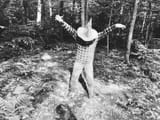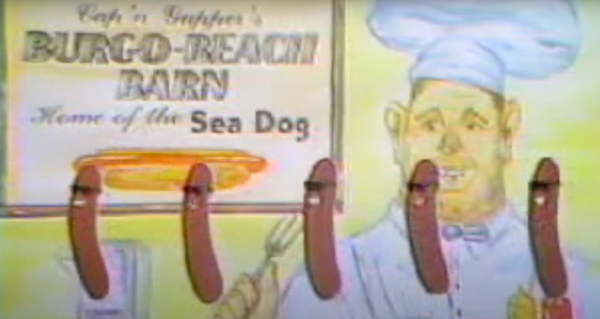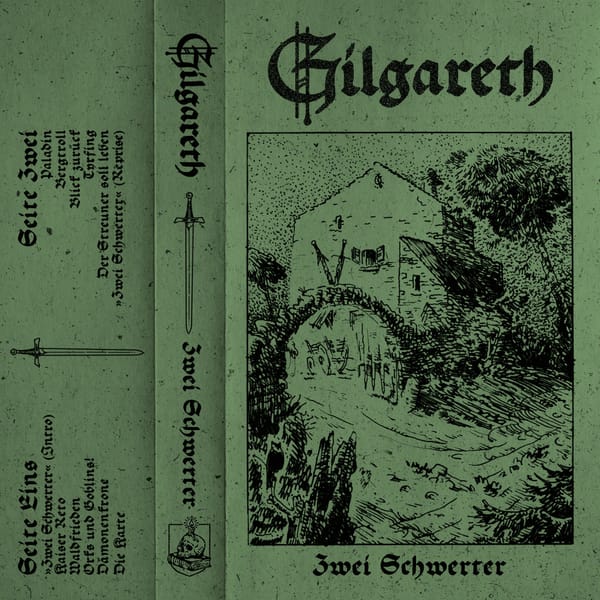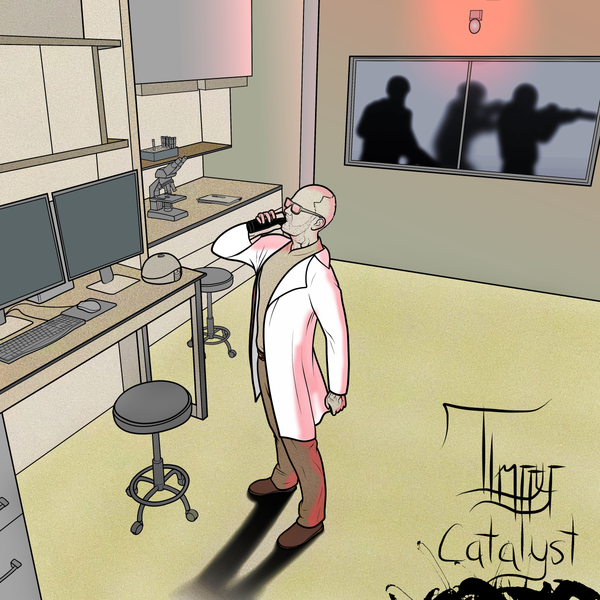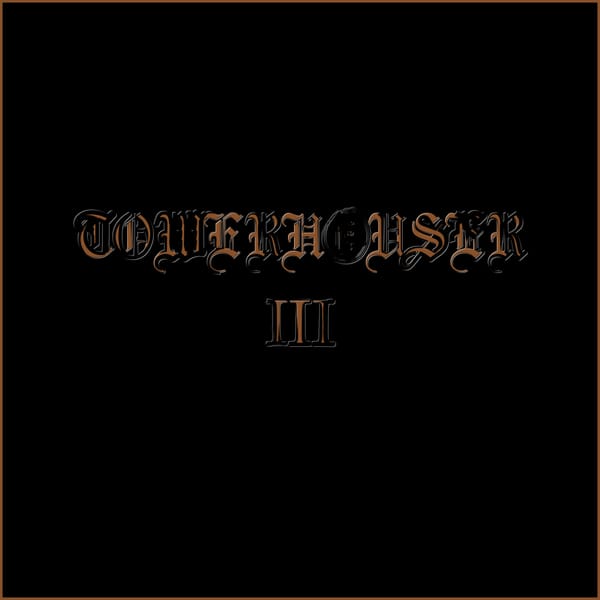But you're not my baby
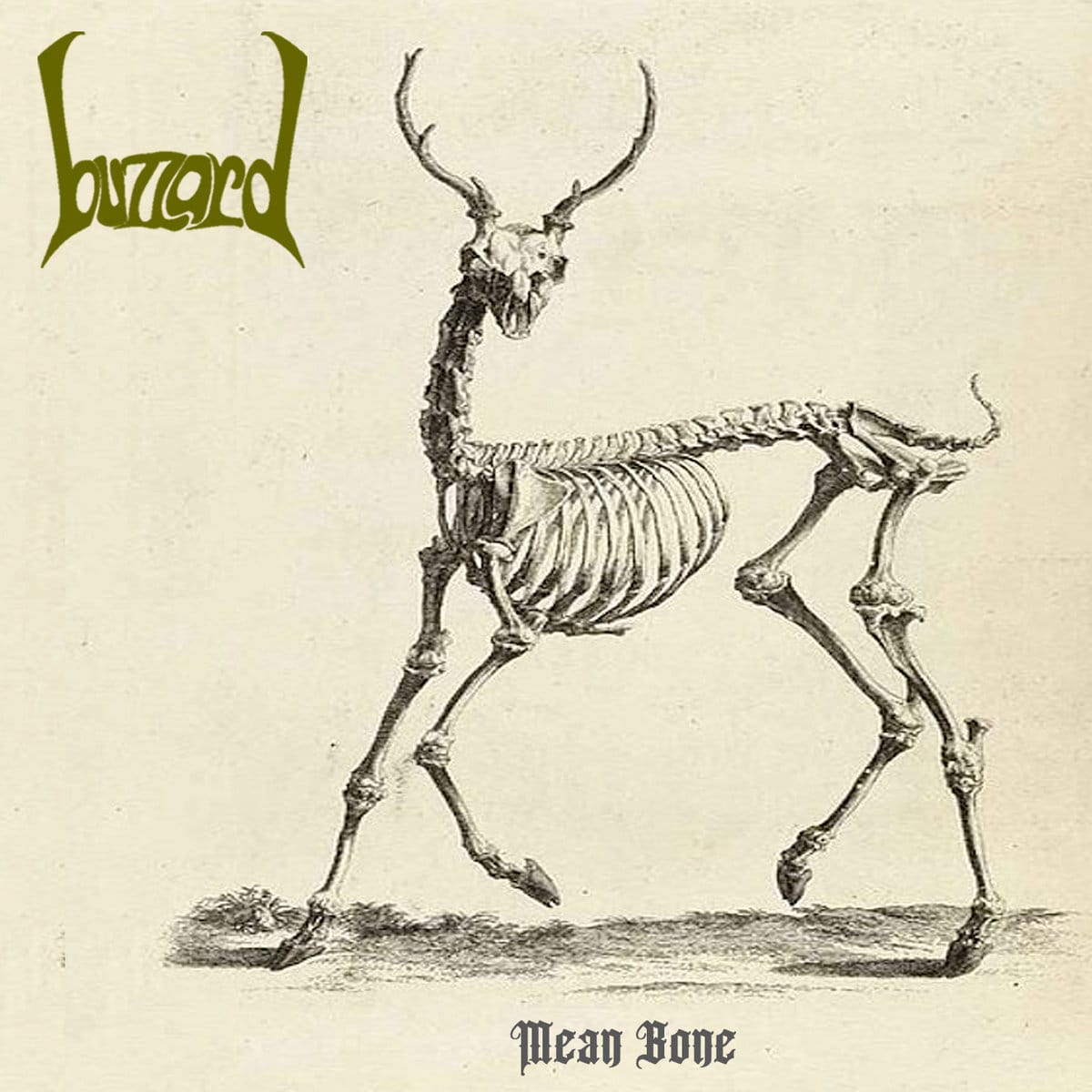
Mean Bone | artist: Buzzard — "Good evening, sir. How about some fuzzy doom from Massachusetts?"
"Why yes, that sounds splendid. I'll have one of those."
A half-hour later.
"Your Buzzard, sir."
I dig in to find a fuzz-faced melange of bassy riffing with a nose of slightly-swingy drums. Political speech not unlike the beginnings of doom in, well, "Hand of Doom". Pounding, but dry those drums. Warm and cozy, those riffs.
I'm not initially keen on (what appears at first to be) a plainish vocal delivery, but then you get a couplet like...
Knuckles dragging on the ground,
Creationists arch a unibrow
And you just let it slide.
Actually, let's not let it slide for just a second. I'm listening to the voice of Christopher Thomas Elliott and I'm searching for who that voice reminds me of. And then it strikes me that there is a certain International Artist feel in it. More specifically, it reminds me of a slightly less twangy George Emerson Kinney whose vocals on the Power Plant album (1968) is one of the lesser keys of Texas psych. Whereas sometimes Kinney gets into a bit of Brit worship (which he loses post psych), Elliot feels more comfortable in his own accent. But I'm liking that comparison.
Back to the album.
Liking the Iommi worship blended with some tactful open-tuned acoustic slide on "Changeling".
You look the same
But you're not my baby
It's an apt description of the music, the feel, maybe the project as a whole. Where everything is both familiar and not at all familiar.
The lyrically sprawling "Ghost of Orphan James" gets at a certain kind of Americana-laced-with-doom. And this is where I make a ridiculous comparison that makes no sense, but I find my ears wandering to the Americana-gypsy songwriter sound of fellow New Englanders Alec K. Redfern and The Eyesores. I think its the kind of ache that can exist in those sorts of plainish (what a terrible word, and here I am using it again) voices.
But there is something else in the plainish voice. Elliott describes this music as Doom Folk — and while it's easy (and lazy) to describe the fuzzy doom riffs (as I have done earlier), it's more difficult to consider this music in the context of Folk.
And that's where these lyricisms lay. "Twisted Love" could have been sung by Mark Eitzel. The stories of American hypocrisy could have come out of the Denver gothic country scene. Once you get into the lyrics — I mean really into the lyrics — it takes the riffs to sometimes shake you out of them.
And then "Dunwich Farm" upends Dylan — and it all becomes clear.
Because there is a long tradition of plainish-voiced political troubadours from Woody to Phil that upends the concept of the "performer" and replaces it with the "prophet" or the "conscience".
That's the tradition that Elliott lives in. And Elliott shows — without showing — that doom is just a part of that. And that's something worth considering. | 3.75 out of 5 stars

